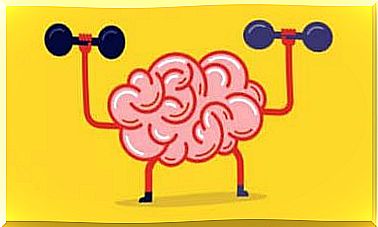The Effects Conscious Breathing Has On Your Brain

Breathing is a natural process in every living thing. Some people breathe through their noses, others breathe through their mouths and others use both at the same time. Everyone breathes in different ways. When you notice your breathing, you realize that you do not always do it the same way. Today you are learning the effects conscious breathing has on your brain.
Breathing is important because it helps you know how your body is doing, both physically and emotionally at all times. So if you are breathing heavily, you are probably under stress, angry, or may be really happy. However, when your breathing is deeper and slower, you feel peaceful and relaxed.
The way the diaphragm moves can help identify how you feel. With this in mind, it’s time to understand how breathing affects the brain.

The differences between breathing consciously and unconsciously
Normal breathing, also known as unconscious breathing or clavicular breathing, is an unconscious process that acts as a gas exchange for your body. It guarantees cellular metabolism by providing the body with oxygen.
At the same time, the breath is connected to the autonomic nervous system (ANS), which regulates the body’s autonomic functions.
On the other hand, conscious or diaphragmatic breathing will not only speed up and improve your breathing, but it will also affect your brain and help you create space for relaxation, calm and emotional security.
The main difference in conscious breathing is how you unconsciously go from thoracic breathing to diaphragmatic breathing.
Diaphragmatic breathing increases your oxygen volume and pressure, fills your lungs, uses all the lung alveoli, and releases a large amount of carbon dioxide from your body. It also manages to activate your parasympathetic nervous system which controls the body’s relaxation and calm states.

The effects of conscious breathing have on your brain
The effects of breathing on your brain are different. Conscious breathing can increase respiration capacity by producing greater cellular oxygenation, tissue oxygenation, controlling tissue pressure, and stimulating the synthesis of adenosine triphosphate (ATP) that enables cellular life.
This happens because conscious breathing improves your blood pressure. In addition, this type of breathing improves your cerebral blood supply and improves the connections between your neurons.
It is worth noting that several studies have shown that when conscious breathing is used as a meditation technique, your brain becomes larger.
In short, the effect breathing has on your brain translates into changes in the prefrontal cortex, in areas related to attention and how you process sensory information.

Conscious breathing also stimulates the vagus nerve. In the same way, it increases the activity of the parasympathetic nervous system every time you inhale or exhale and decreases the activity of the sympathetic nervous system. How can you achieve relaxation? A small variation leads to an increase in acetylcholine, a neurotransmitter that asks your brain to relax.
Finally, conscious breathing will help you find balance in your body. In addition, it can improve the way your neuroendocrine, digestive, circulatory, neurochemical and nervous systems work.









